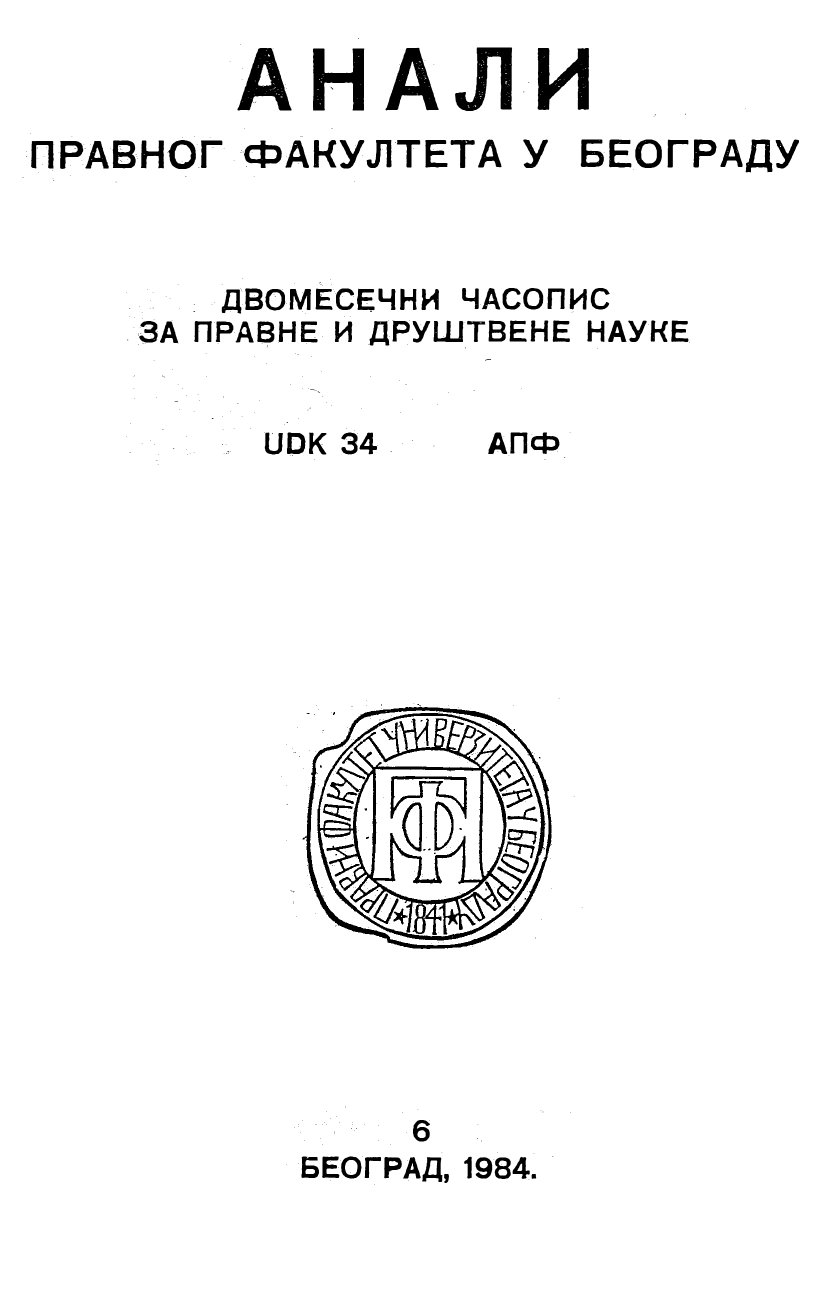ОРГАНИЗАЦИЈА МИНИСТАРСТАВА У ФРАНЦУСКОЈ
THE ORGANISATION OF MINISTRIES IN FRANCE
Author(s): Marc GjidaraSubject(s): Politics / Political Sciences, Politics, Government/Political systems
Published by: Правни факултет Универзитета у Београду
Summary/Abstract: In this article, the author analyses the authority of the ministers and the organisation of the ministries, by looking at the position of the ministers in the government, their activities as chiefs of their relevant departments, and the coordination among them. He does this by taking into account the point of view that the position of the ministers is, at the same time, political and administrative. The President of the Republic is the real generating force of the government's initiative, so that his views (program) determine the activities of the ministers in the government. He rarely issues directives to the relevant ministers themselves, but rather does this through the agency of the Prime Minister; it goes without saying, however, that the activities of the ministers are in alignment with the political program of the President. The Prime Minister supervises the daily activities of the ministries. He issues orders to the ministers, and his interventions are usually public. The position of the minister at the head of his relevant department is politically framed by the prerogatives of the Head of State, and administratively by the authority of the Prime Minister. The minister manages over the activities of his relevant department. The organisation of the ministry is not regulated by law, and therefore can be changed as the case may be. The principle of hierarchy is strongly stressed, and so are the prerogatives of the minister. The most important authority of the minister regards his legislative initiative (within the competence of his department), and his right of countersignature of the proposals made by the President and the Prime Minister (in matters within the competence of his department). In dealing with one another, the ministers are equal in rights, and jointly support the political program of the government. Their cooperation is formalised by their joint countersignature. In the matter of appointment to the ministerial function, two principles are applied: the principle of political merit, and the principle of professional or expert skills. Research has revealed that the number of officials and administrative employees is constantly increasing, and therefore, the cost of their maintainance. The author is of the opinion that this has already become a political problem. In conclusion, the author is in favour of the modernisation of the administration; he is also for combining centralisation with decentralisation; he feels that horizontal communication should be improved; finally, he is in favour of the introduction of modem technical means into their work.
Journal: Анали Правног факултета у Београду
- Issue Year: 32/1984
- Issue No: 6
- Page Range: 775-791
- Page Count: 17
- Language: Serbian

